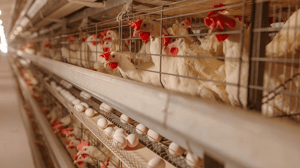Ingles Markets finishes fiscal year on positive noteIngles Markets finishes fiscal year on positive note
Regional grocer posts strong Q4, full-year comp-store results
December 10, 2019

Ingles Markets closed out its 2019 fiscal year with sales and earnings gains for the fourth quarter, posting strong same-store sales increases for both periods.
Ingles said Tuesday that for the quarter ended Sept. 28, net sales came in at $1.08 billion, up 1.5% from $1.06 billion a year earlier. Excluding fuel, comparable-store sales climbed 3.7% year over year.
Gross profit rose 1.5% to $260.3 million from $256.4 million in the fiscal 2018 quarter. As a percentage of sales, gross profit was 24.2% for both the current and prior-year periods.
At the bottom line, net earnings for the 2019 fourth quarter totaled $20.9 million, or $1.03 per diluted Class A common share, up from $18.4 million, or 91 cents per diluted Class A common share, a year ago.
“We are pleased with another year of record sales and with the steps we are taking for the long-term health of our company,” Chairman Robert Ingle II said in a statement. “Our associates continue to do a great job making sure our customers are happy.”
For the full 2019 fiscal year, Ingles tallied net sales pf $4.2 billion, up 2.7% from $4.09 billion in fiscal 2018. Comp-store sales excluding gasoline grew 3.9% versus a year earlier.
Fiscal 2019 gross profit was $1.02 billion, or 24.3% of sales, up 4.3% from $980.2 million, or 24% of sales, in fiscal 2018.
Net income for the year totaled $81.6 million, or $4.03 per diluted Class A common share, compared with $97.4 million, or $4.81 per diluted Class A common share, a year ago.
Ingles noted that the earnings result reflects the year-over-year cycling of a benefit from federal income tax reform. Income tax expense for fiscal 2019 was $25 million versus an income tax benefit of $17 million in fiscal 2018.
Capital expenditures came in at $161.8 million for fiscal 2019, compared with $150.5 million for fiscal 2018. Asheville, N.C.-based Ingles finished the year with 198 supermarkets in the Carolinas, Georgia, Tennessee, Alabama and Virginia, compared with 200 a year ago.
About the Author
You May Also Like






